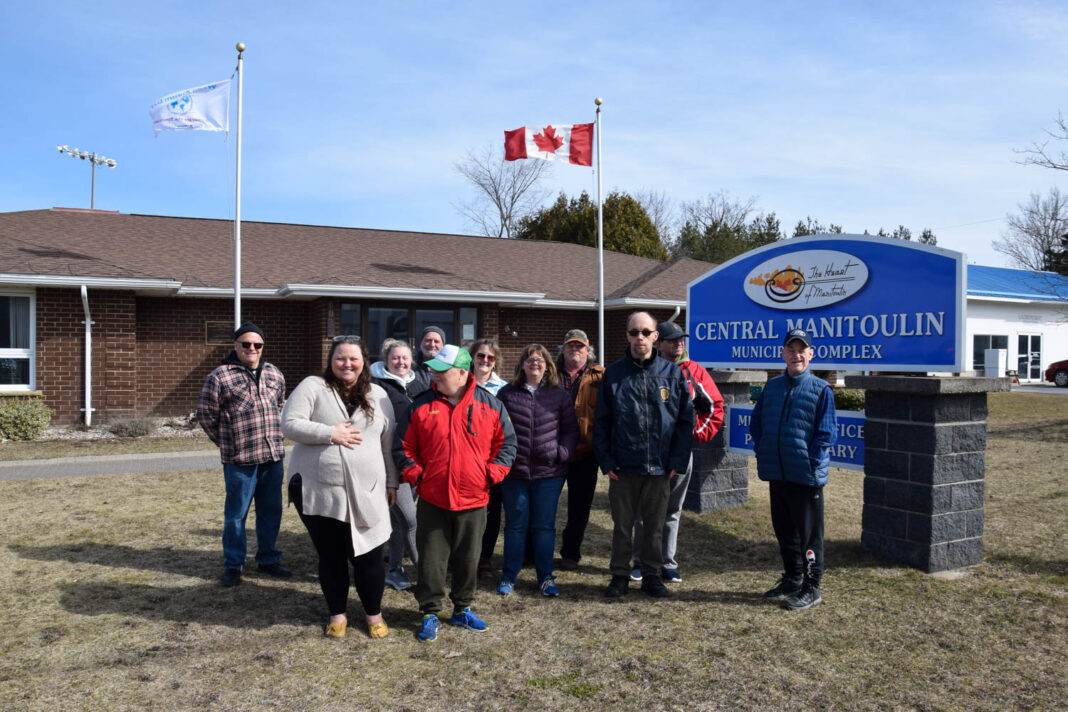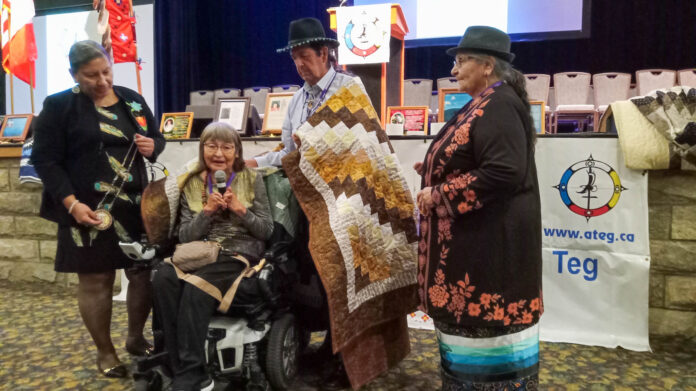CENTRAL MANITOULIN—April 2 was World Autism Day and the Municipality of Central Manitoulin raised a flag in honour of the day. A number of residents from Manitoulin Community Living (CLM) were on hand for the flag raising, conducted by one such resident, Tim Bradley.
“This is wonderful,” noted Wendy Friedman, CLM manager who accompanied the residents to the flag raising. Central Manitoulin Councillors Derek Stephens and Dale Scott were on hand to witness the flag raising.
According to the Canadian Medical Association Journal, approximately one to two percent of the Canadian population are somewhere on the autism spectrum—that means there are approximately 135,000 people with autism in Ontario.
Autism (also known as autism spectrum disorder or ASD) is a lifelong neurodevelopmental condition. It presents in many ways and can affect sensory processing, social communication, ability to carry out certain tasks, as well as emotional and behavioural regulation. But every autistic person has a unique combination of symptoms and those symptoms can vary considerably in intensity. Many individuals may also have co-occurring conditions.
People on the autism spectrum use many different terms to describe themselves. “People with autism” is person-first language while ‘autistic people’ is an example of identity-first language. If you’re not autistic, try to use the language that the autistic people in your life ask you to use.
While the causes of autism are unknown, some scientists suggest genetics and environment both likely play a role. Researchers worldwide are working to understand the factors that can increase the likelihood of a person being autistic, but it is important to remember that an increased chance of autism is not the same as being the cause.
What is known is that autism is not contagious, (despite viral conspiracy theories) autism is not caused by vaccination and is not a result of parenting style—that’s the science, not social media posturing.
Autism looks different for everyone, and each person with autism has a distinct set of strengths and challenges. Some autistic people can speak, while others are nonverbal or minimally verbal and communicate in other ways. Some have intellectual disabilities, while some do not. Some require significant support in their daily lives, while others need less support and, in some cases, live entirely independently.
Autism is usually diagnosed around age five, but signs can begin appearing by age two or three. People on the autism spectrum might also have co-occurring conditions that can affect overall physical health, such as epilepsy, hypotonia, sleep disorders, digestive issues, uncommon responses to pain (over- or under-reacting) and/or metabolism problems (how the body breaks down food for energy).
Some common co-occurring mental health conditions for those on the autism spectrum can include anxiety, depression, obsessive compulsive disorder (OCD) and/or attention deficit hyperactivity disorder (ADHD). Those health conditions can appear at any time over a person’s life or not exhibit at all.
What is important to know is that those people who are impacted by autism can require vastly different supports and approaches—that makes it exceedingly difficult for government programs to encompass, leading to significant shortfalls in program funding and arbitrary program cut-offs.
Given the right supports and programs, people with autism can live healthy and productive lives.
Central Manitoulin CAO Denise Deforge was on hand for the raising of the flag. “Although Autism Day is only April 2, the municipality will fly the flag throughout the week,” she said.
The raising of the flag in Central Manitoulin not only acknowledges autism, but also the importance of understanding what autism is and how community can all help.





